Jenny Kush
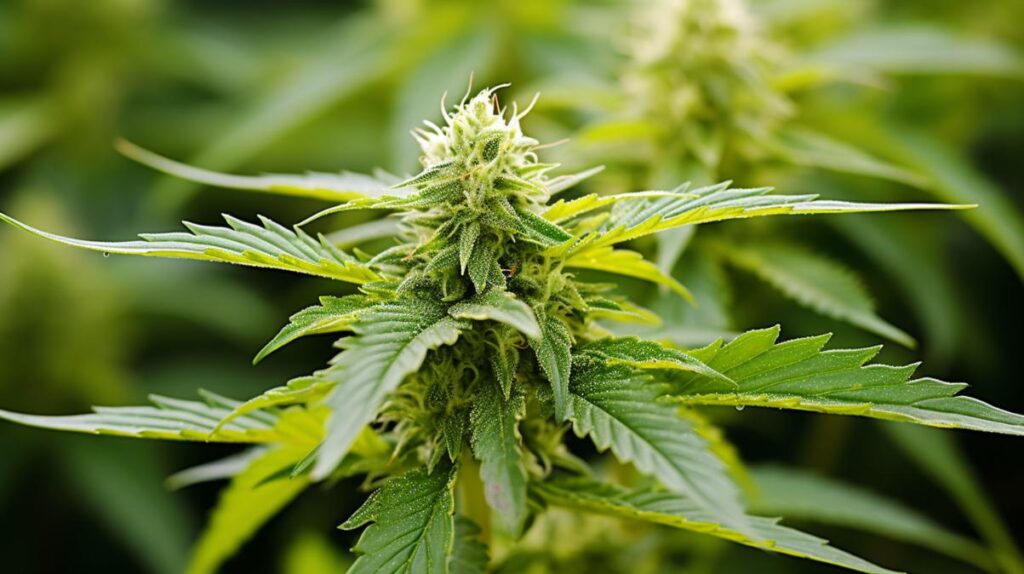
In the realm of cannabis strains, Jenny Kush stands out as a sativa-dominant hybrid that has garnered attention for its distinctive blend of uplifting and creative effects. Named in honor of cannabis activist Jenny Monson-Frieda, this strain boasts a unique terpene profile, delivering a nuanced flavor that combines nutty notes with a hint of citrus.
With a THC content that ranges impressively from 30% to 34%, Jenny Kush is particularly suited for those with a higher tolerance, offering potential relief for conditions such as depression, stress, and anxiety. Its popularity is evident, available for both immediate pickup and delivery in locales such as Cheyenne, WY, underscoring its demand among both recreational users and medical cannabis patients.
However, the true depth of Jenny Kush—spanning its genetic lineage, history, and the full spectrum of its effects—presents a rich tapestry that invites further exploration into what makes this strain both potent and beloved within the cannabis community.
Genetic Lineage
The genetic lineage of Jenny Kush, a sativa hybrid strain, is robustly defined by its cross between Amnesia Haze and Rare Dankness #2, showcasing a meticulous breeding process aimed at achieving a balance of mental stimulation and relaxation. This particular crossbreeding underscores a deliberate effort to fuse the distinct characteristics of Amnesia Haze, known for its potent cerebral effects and ability to enhance creativity and focus, with the properties of Rare Dankness #2, which contributes to the strain’s depth of aroma and complex flavor profile. The result is a balanced hybrid that maintains the elevating and mentally stimulating effects inherent to Amnesia Haze while introducing a nuanced layer of relaxation, making Jenny Kush uniquely positioned within the cannabis market.
The strategic selection of Amnesia Haze as a parent strain is instrumental in the genetic makeup of Jenny Kush, imparting a high THC content that ranges between 30%-34%. This formidable potency, combined with the strain’s heritage, contributes to its efficacy in inducing a strong euphoric and cerebral experience. The genetic blueprint of Jenny Kush, therefore, not only pays homage to its namesake but also serves a dual function of providing mental upliftment and subtle relaxation, thanks to its well-considered genetic lineage.
History and Origin
In commemorating the impactful legacy of Jenny Monson, a fervent cannabis activist, Rare Dankness Seeds meticulously crafted Jenny Kush, a strain that not only memorializes her contributions but also marks a significant evolution in cannabis breeding practices. The creation of Jenny Kush represents a thoughtful blend of science and homage, with its genetics rooted in a deliberate cross between Amnesia Haze and Rare Dankness #2. This genetic combination was engineered to produce a balanced hybrid strain, encapsulating both the invigorating cerebral effects of sativa and the soothing, relaxing qualities of indica.
| Aspect | Details | Impact |
|---|---|---|
| Genetic Lineage | Amnesia Haze x Rare Dankness #2 | Balanced hybrid with complex aroma and effects |
| Aroma & Taste | Earthy, pine, diesel | Engages senses, enhancing the user experience |
| THC Content | 30%-34% | High potency suited for experienced users |
| Effects | Relaxation, euphoria, creativity boost | Suitable for evening use, creative pursuits |
| Medical Uses | Mood elevation, stress relief | Benefits for dealing with depression, stress, anxiety |
Rare Dankness Seeds’ creation of Jenny Kush not only pays tribute to Jenny Monson but also sets a benchmark in cannabis breeding, showcasing the potential for strains to carry forward legacies while pushing the boundaries of what cannabis can offer both recreationally and medicinally.
THC/CBD Content
Boasting an average THC content of 30%-34%, Jenny Kush emerges as a high-THC strain, with a minimal CBD presence of only 0.10%, delineating its strong psychoactive properties and specific therapeutic applications. This strain named after a cannabis activist, showcases a unique profile that caters to seasoned cannabis users and medical patients searching for potent relief.
The high THC level underscores its capacity to induce a profound euphoric and cerebral high, which is instrumental in its mood-elevating and stress-relieving effects.
The negligible CBD content in Jenny Kush amplifies the strain’s psychoactive impact, making it less suitable for individuals seeking the balancing effects of CBD. This composition positions Jenny Kush as a strain with a distinct recreational appeal, while also serving a niche in the medical cannabis market for those looking to manage symptoms of depression, anxiety, and stress without the moderating effects of CBD. Potential users and medical patients are advised to consult with healthcare professionals to navigate its potent THC levels effectively.
This strain named Jenny Kush thus stands as a powerful example of cannabis breeding tailored to specific user needs and preferences.
Terpene Profile
Central to Jenny Kush’s distinctive characteristics is its dominant terpene profile, comprising myrcene, limonene, and beta-caryophyllene, which collectively shape its aromatic and therapeutic attributes. This specific combination of terpenes plays a pivotal role in defining the strain’s unique earthy aroma, further enriched with musky, fruity undertones, and accentuated by notes of citrus, lemon, and orange. It’s this intricate terpene profile that not only contributes to Jenny Kush’s olfactory appeal but also to its potential therapeutic efficacy.
From an analytical standpoint, myrcene, known for its sedative qualities, may offer physical relief and foster a healthy inflammation response, thereby appealing to users seeking physical comfort. Limonene, on the other hand, is often associated with mood enhancement and stress reduction, aligning with the needs of individuals aiming to alleviate mental distress. Beta-caryophyllene further complements this profile by potentially contributing to the entourage effect, enhancing the overall experience and efficacy of the strain.
Given its terpene profile, Jenny Kush emerges as a strain with multidimensional benefits, straddling the divide between recreational enjoyment and medical utility. For those selecting Jenny Kush products, an understanding of its terpene composition and resultant effects is crucial for optimizing the desired experience and therapeutic outcomes, making the terpene profile a central consideration in product choice.
Effects
Harnessing a robust blend of uplifting and creative effects, Jenny Kush emerges as a strain particularly favored for its capacity to induce feelings of happiness and euphoria among users. In the realm of effects, its profile is multifaceted, providing both mental stimulation and emotional uplift. Users report a surge of creativity and an uplifted mood, making it an ideal choice for those seeking a reprieve from the mundane or a spark of inspiration in their daily lives.
| Positive Effects | Negative Effects |
|---|---|
| Uplifted feelings | Potential for paranoia |
| Creative inspiration | Anxiety in some users |
| Happy and euphoric | |
| Helps with depression |
The dichotomy of effects underscores the importance of dosage and individual biochemistry in the experience of consuming Jenny Kush. While the majority of users revel in its nutty and citrus flavor profile alongside its calming and energizing effects, it’s crucial to approach with caution due to reports of paranoia or anxiety in sensitive individuals. This nuanced understanding of its effects, both positive and therapeutic as well as potential adverse reactions, is vital for users seeking to maximize benefits while minimizing risks.
Medical Uses
Jenny Kush, revered for its multifaceted therapeutic benefits, offers significant relief to individuals grappling with depression, stress, and anxiety through its calming and energizing properties. This remarkable strain harnesses the synergy of its psychoactive components to provide a dual-action effect that not only soothes the mind but also invigorates the spirit, making it a sought-after solution in the realm of medical cannabis.
The medical uses of Jenny Kush are extensive and varied, catering to a wide spectrum of patient needs:
-
Mood Regulation and Stress Relief: It induces a soothing and uplifting effect, crucial for those battling the adverse effects of stress and anxiety. This makes it particularly beneficial for unwinding after long, strenuous days or combating pervasive anxious feelings.
-
Enhancement of Mental Functions: Patients have reported an increase in creativity, focus, and overall mood elevation, attributes that are invaluable for both recreational enjoyment and therapeutic applications, especially in managing symptoms that impair cognitive performance.
-
Social Situational Support: Its potential to alleviate social anxiety and enhance sociability makes Jenny Kush a favored choice for medical cannabis patients seeking to navigate social situations more comfortably.
Patients looking to explore the benefits of Jenny Kush for their condition should seek professional medical advice and locate reputable dispensaries offering this strain.
Flavor and Aroma
Beyond its therapeutic applications, the Jenny Kush strain distinguishes itself with a distinctive flavor and aroma profile that contributes significantly to its overall appeal. The complexity of its scent and taste is a direct reflection of its rich genetic background, offering a sensory experience that is both unique and memorable.
| Aspect | Description |
|---|---|
| Aroma | Fresh and sharp with an intricate blend of fruity and herbal notes, creating an inviting olfactory experience. |
| Flavor | A harmonious mix of nutty and citrus notes, providing a palate-pleasing taste that is both unique and refreshing. |
| Inhale | Earthy and floral tones dominate, setting the stage for a sophisticated sensory experience. |
| Exhale | A sharp, sweet citrus finish that leaves a lasting impression, underlining the strain’s uplifting qualities. |
This strain’s flavor and aroma are not only soothing and uplifting but also play a crucial role in its balanced effects. The combination of earthy, floral inhales with a sharp, sweet citrus exhale contributes to its ability to leave the body at ease while elevating the spirits. This makes Jenny Kush particularly suitable for evening or nighttime use, where its flavor and aroma can be fully appreciated in a relaxed setting.
Appearance
The visual presentation of the Jenny Kush strain is marked by its vibrant dark green buds, accentuated with occasional purple hues and a generous coating of sparkling white trichomes, embodying its balanced genetic heritage. This appearance is not just a feast for the eyes but also a testament to its hybrid vigor, combining the best traits of its indica and sativa lineage.
The strain’s aesthetics are complemented by a pungent and earthy aroma with undercurrents of pine and diesel, which hints at the complex terpene profile underlying its visual appeal.
Key aspects of the Jenny Kush strain’s appearance include:
-
Vibrant Coloration: The dark green buds with occasional purple undertones reflect a rich phytochemical composition, indicative of a robust cultivation process.
-
Trichome Coating: A lavish layer of trichomes suggests a high cannabinoid content, including moderate to high THC levels and the presence of CBD and other beneficial cannabinoids.
-
Balanced Hybrid Characteristics: The strain’s physical appearance, with its blend of colors and textures, mirrors its balanced effects, offering both relaxation and euphoria suited for evening or nighttime use.
Grow Information
Having explored the aesthetic charm of the Jenny Kush strain, it is pertinent to examine the cultivation practices that contribute to its distinct appearance and potency.
The Jenny Kush, a balanced hybrid cannabis strain named in honor of the late cannabis activist Jenny Monson, offers a moderate challenge to growers. This strain, a tribute to an advocate who passionately worked for cannabis reform before tragically passing away, demands meticulous attention to detail and a solid grasp of advanced cultivation techniques.
Cultivating Jenny Kush, a hybrid of Haze x Rare genetics, encapsulates a flowering period of approximately 8-10 weeks when grown indoors, underscoring the importance of a controlled environment for achieving its full potential. This environment fosters stability and optimal conditions, crucial for the strain’s development.
It exhibits a moderate to high yield potential, rewarding diligent growers with a generous harvest reflective of their efforts. To maximize the yield and manage the growth efficiently, adopting training and pruning methods such as topping and low-stress training is advisable. These practices not only enhance the plant’s structural integrity but also improve light penetration and air circulation, pivotal for the cultivation of Jenny Kush.
Such detailed grow information underscores the complexity and reward of cultivating this homage to a revered cannabis activist.
Adverse Effects
While Jenny Kush strain is celebrated for its balanced effects and homage to a cannabis activist, it is imperative to examine the potential adverse effects it may present to users, including paranoia, anxiety, dry mouth, dry eyes, and the risk of dizziness or headaches following excessive consumption.
From a pharmacological standpoint, the psychoactive compounds within the Jenny Kush strain, primarily THC, can interact variably with the endocannabinoid system in individuals, leading to diverse physiological and psychological reactions.
Notably:
-
Paranoia and Anxiety: These can stem from THC’s ability to overstimulate the amygdala, the brain region involved in fear and anxiety responses. Vulnerability to these effects may vary based on individual sensitivity and psychological disposition.
-
Dry Mouth and Dry Eyes: These are common symptoms of cannabis use, attributed to THC’s inhibition of saliva secretion and tear production. The anticholinergic properties of cannabinoids disrupt the normal function of the parasympathetic nervous system, leading to decreased fluid secretions.
-
Dizziness or Headaches: Excessive consumption can lead to a temporary decrease in blood pressure, resulting in dizziness, while vasodilation triggered by cannabinoids can induce headaches.
Understanding these potential adverse reactions is crucial for informed consumption and mitigating unwanted effects, emphasizing the importance of moderation and individual awareness.
Comparisons with Similar Strains
Exploring the cannabis market reveals that the Jenny Kush strain, known for its balanced effects and homage to activism, shares similarities with other strains in terms of uplifting and mentally stimulating experiences, flavor profiles, and therapeutic benefits, highlighting the importance of nuanced comparisons for informed consumer choices.
For those seeking a similar euphoric and creative boost, Amnesia Haze emerges as a viable option, renowned for its capacity to foster creativity and induce a state of blissful euphoria.
Meanwhile, aficionados of Jenny Kush’s nutty and citrus notes might find Lemon Haze’s lemony zest and energizing high a comparable delight, offering a sensory experience that parallels Jenny Kush’s flavor profile while providing an invigorating uplift.
For users prioritizing stress and anxiety relief, OG Kush stands out with its potent calming effects and mood elevation, mirroring Jenny Kush’s therapeutic benefits in managing stress and anxiety without compromising on mental clarity. Blue Dream presents itself as another alternative, celebrated for its harmonious blend of relaxation and cerebral stimulation, akin to Jenny Kush’s subtle euphoria.
Lastly, for those valuing the medical benefits of mood enhancement and stress relief, White Widow offers a similar earthy and floral aroma, providing a comparable therapeutic refuge for users seeking relief from depression, stress, and anxiety.
Research and Studies
Delving into scientific inquiries, research focusing on the Jenny Kush strain’s genetic makeup and cannabinoid composition sheds light on its nuanced effects and potential health benefits. This multifaceted approach to studying Jenny Kush encompasses several critical areas:
-
Genetic Lineage and Cannabinoid Profile: Investigations into the strain’s genetic roots and the spectrum of cannabinoids it contains are pivotal. These studies aim to correlate specific genetic markers with the strain’s reported effects, such as alleviation of stress and enhancement of mood. Understanding the cannabinoid profile, including the levels of THC, CBD, and other minor cannabinoids, helps in predicting its therapeutic potential and suitability for various medical conditions.
-
Terpene Composition: Terpenes, the aromatic compounds found in cannabis, play a significant role in the strain’s distinctive aroma and may contribute to its therapeutic effects through the entourage effect. Research into Jenny Kush’s terpene profile seeks to uncover the synergy between these compounds and cannabinoids, potentially enhancing its anti-anxiety, anti-inflammatory, and analgesic properties.
-
Comparative Effectiveness and Therapeutic Applications: Studies comparing Jenny Kush with other strains offer insights into its unique benefits and potential medical applications. Focused research on its impact on mood disorders, creativity, and relaxation supports the development of targeted therapies, contributing to a more personalized approach in medical cannabis use.
Frequently Asked Questions
Is Jenny Kush Strain Indica or Sativa?
The inquiry pertains to the genetic origin of a specific cannabis variety, focusing on whether it aligns with indica or sativa classifications. The Jenny Kush strain is a Sativa Hybrid, demonstrating characteristics predominantly associated with sativa genetics.
How Does Jenny Kush Make You Feel?
The emotional impact of this strain typically includes feelings of upliftment, creativity, and happiness. It is known to alleviate symptoms of depression, stress, and anxiety, while potentially inducing feelings of paranoia and anxiety in some individuals.
Is Kush Strain Sativa or Indica?
The Kush strain’s genetic background encompasses both indica and sativa lineages, resulting in a diverse spectrum of phenotypes. Typically, Kush varieties exhibit indica-dominant traits, offering physically relaxing effects alongside a moderate cerebral uplift.
Who Created Jenny Kush?
The strain in question was developed by Rare Dankness Seeds, a notable entity in cannabis breeding. This hybrid’s origins are a deliberate cross between Amnesia Haze and Rare Dankness #2, showcasing a balanced genetic profile.

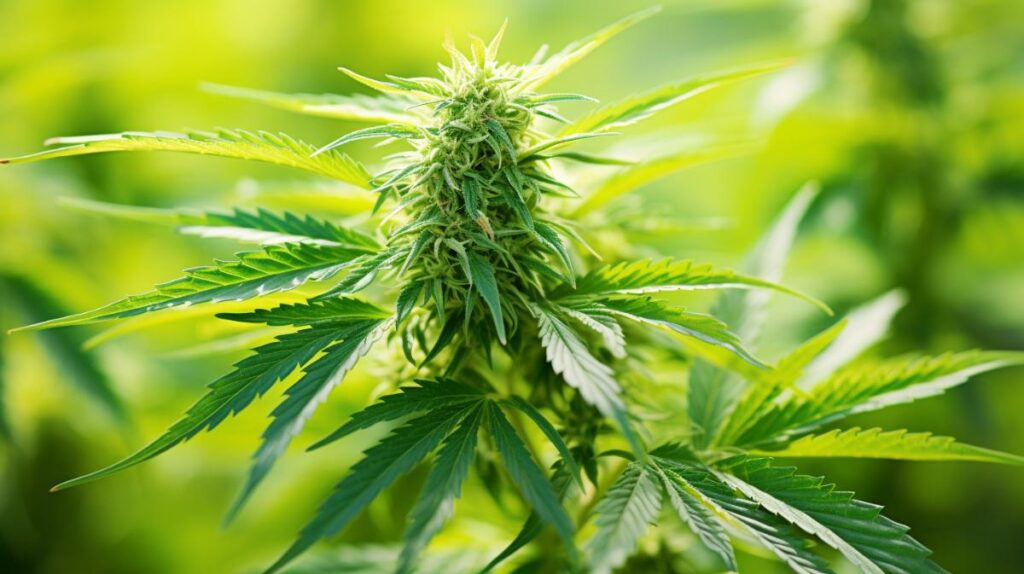
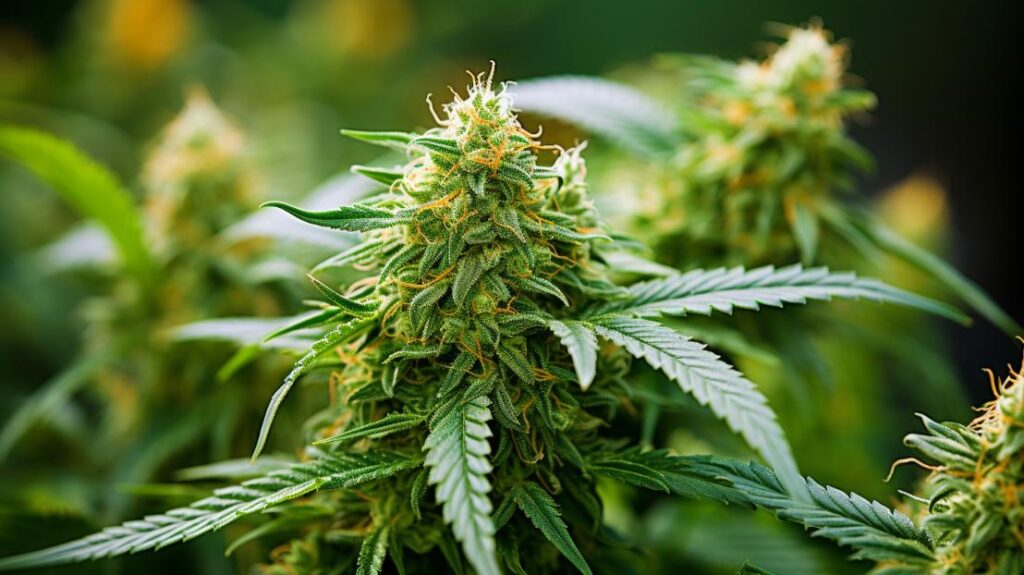
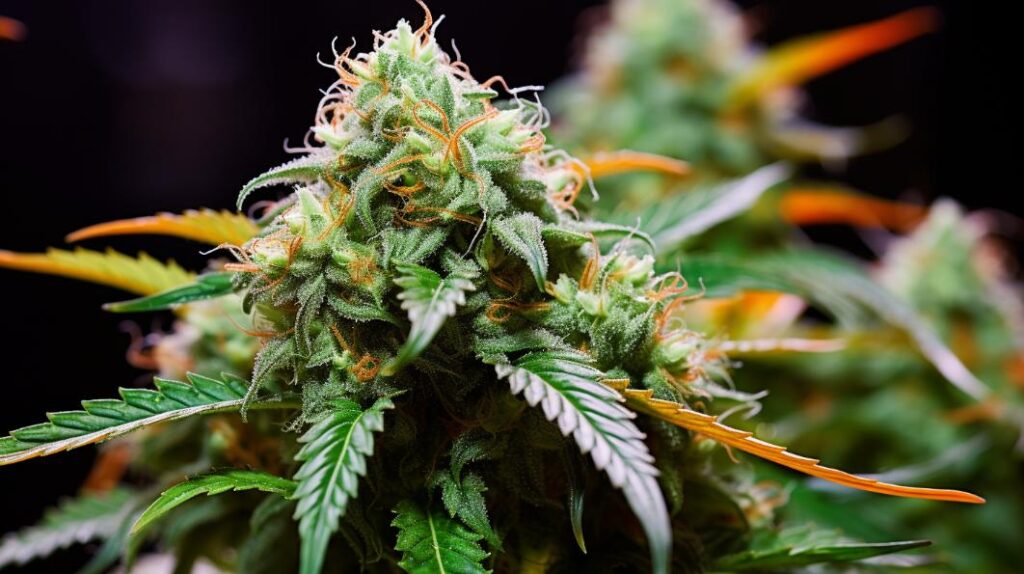
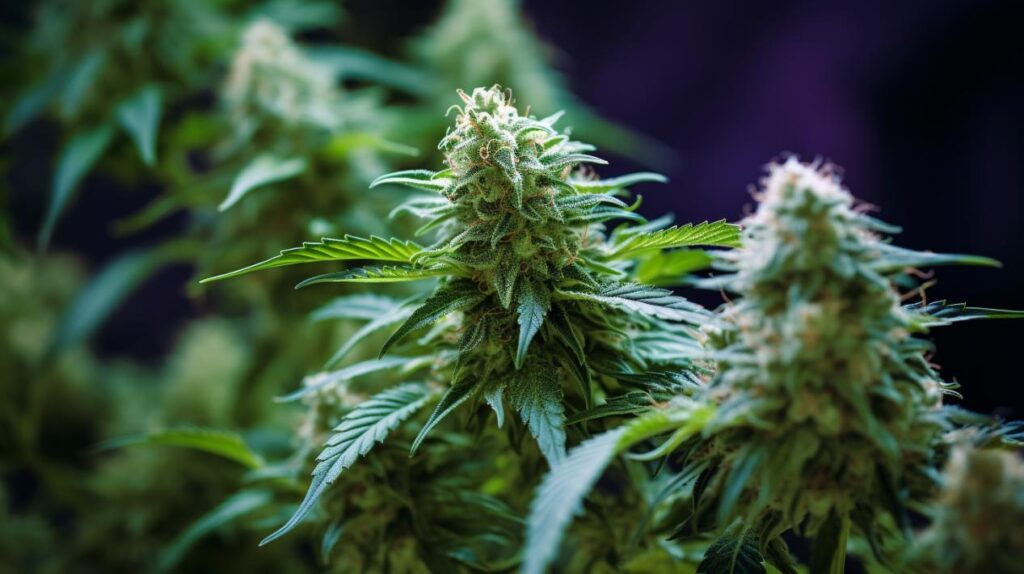
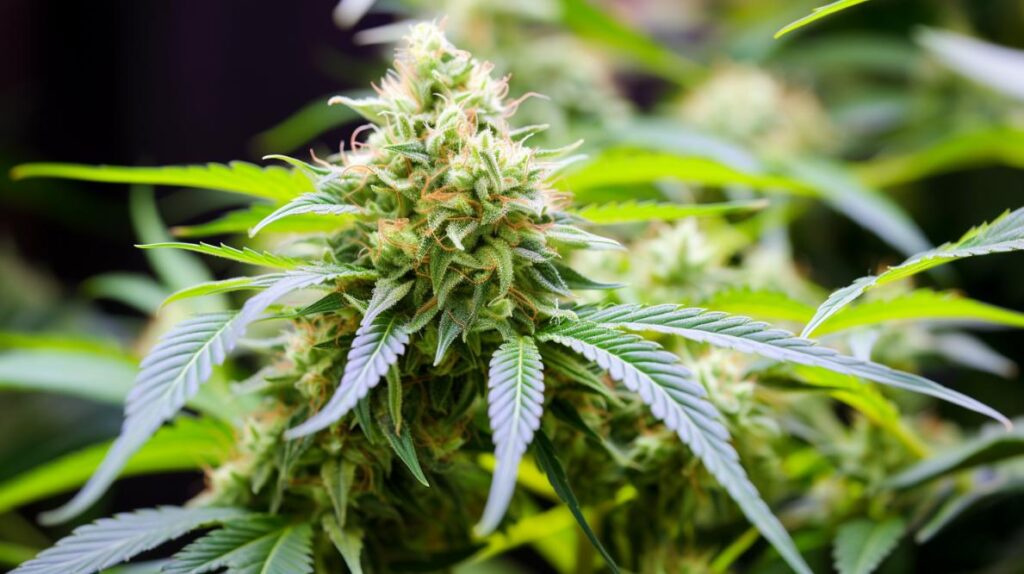

Responses